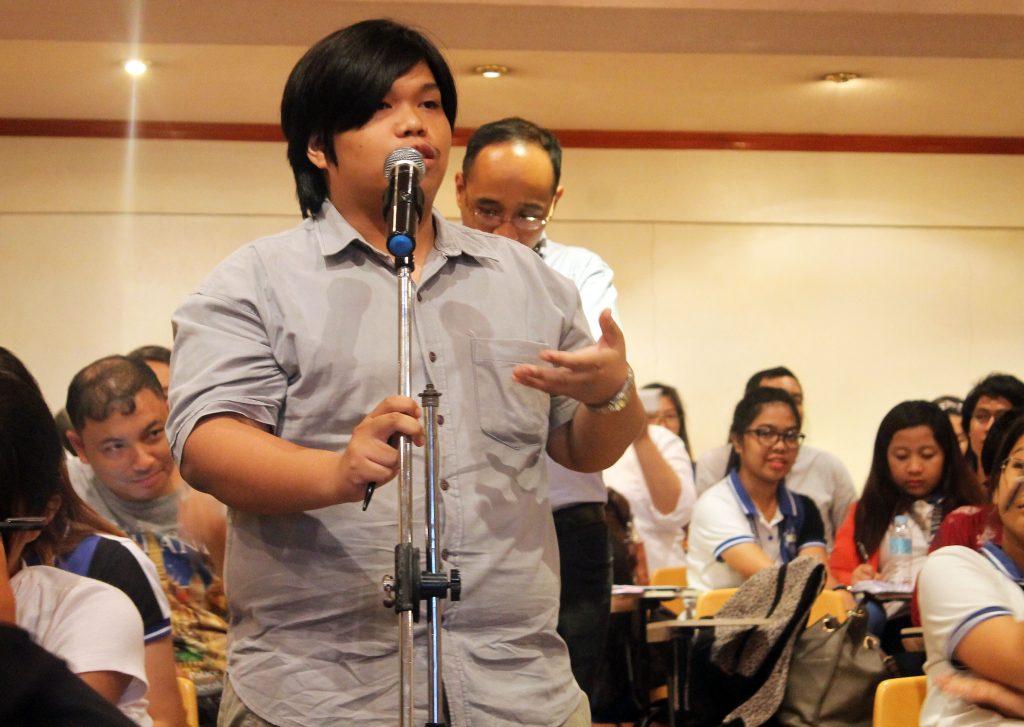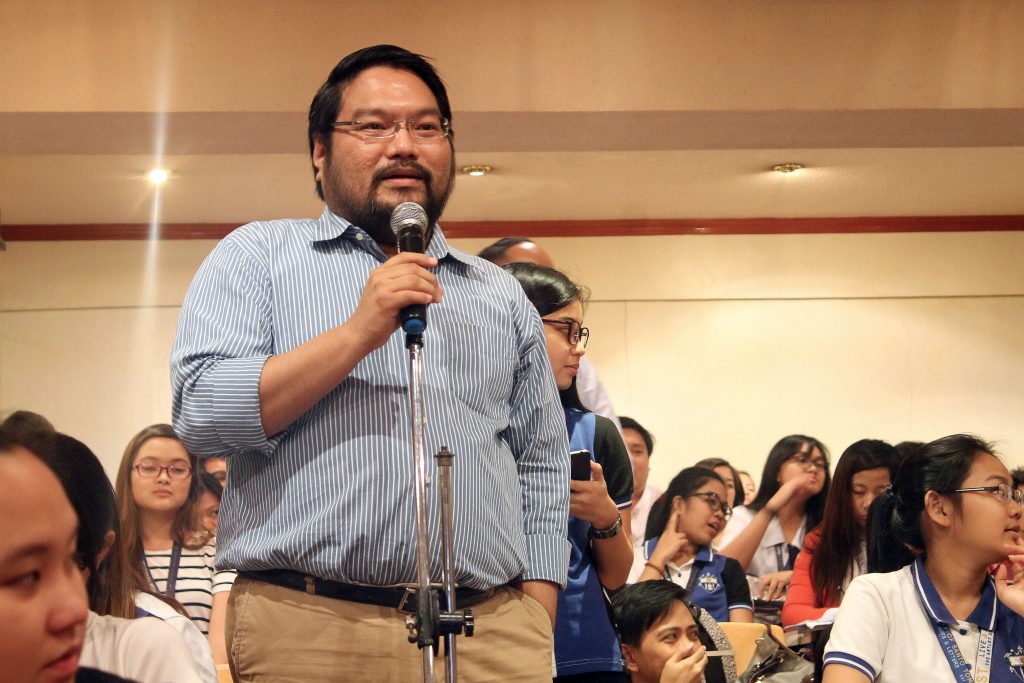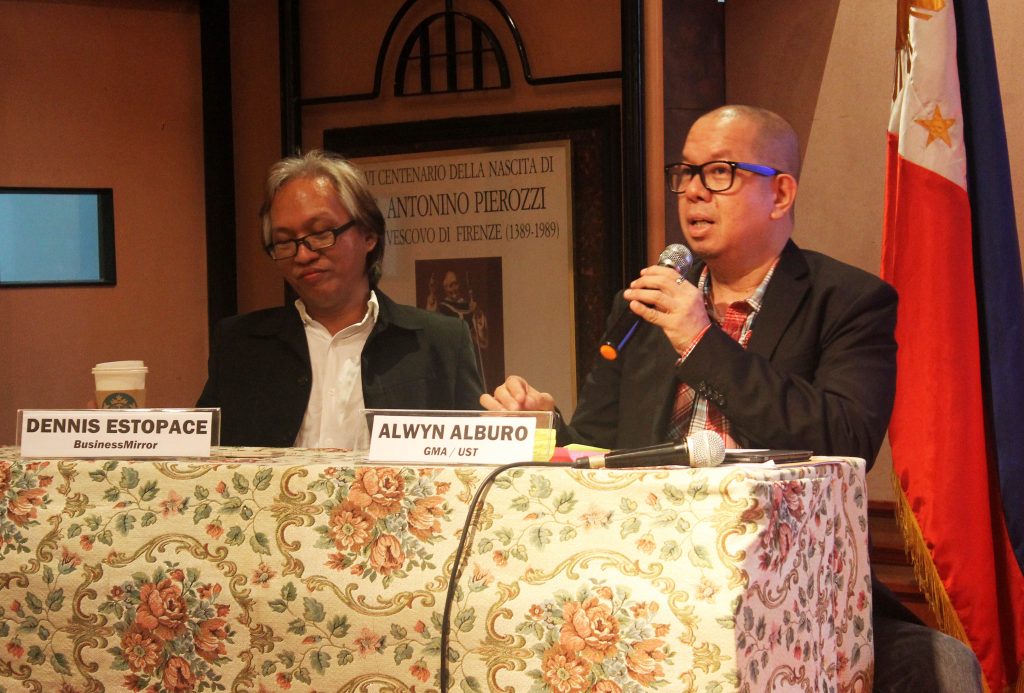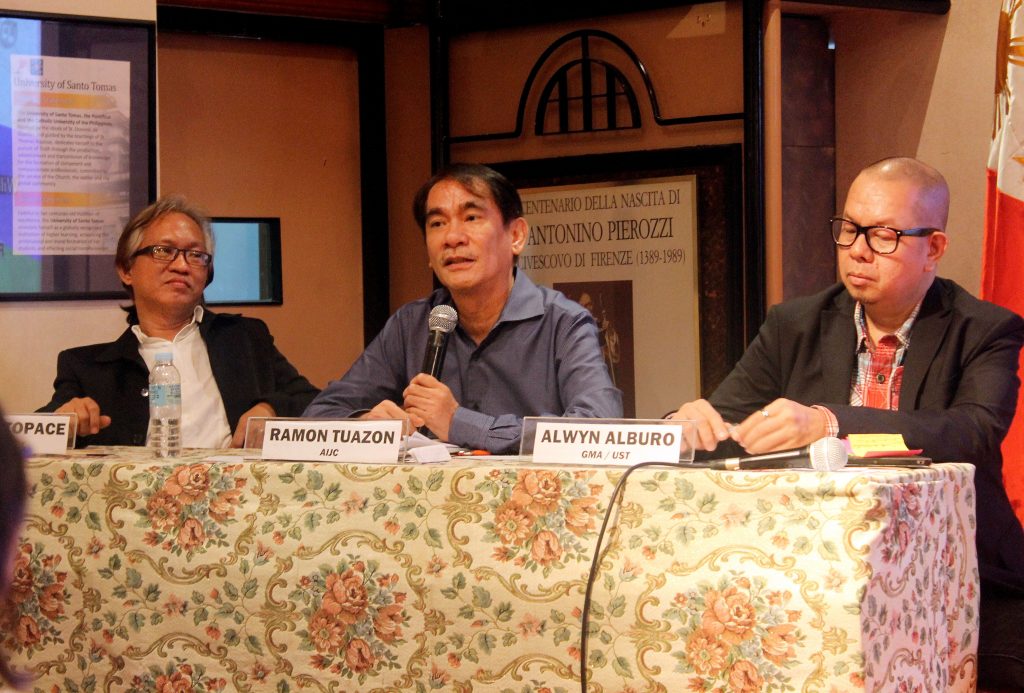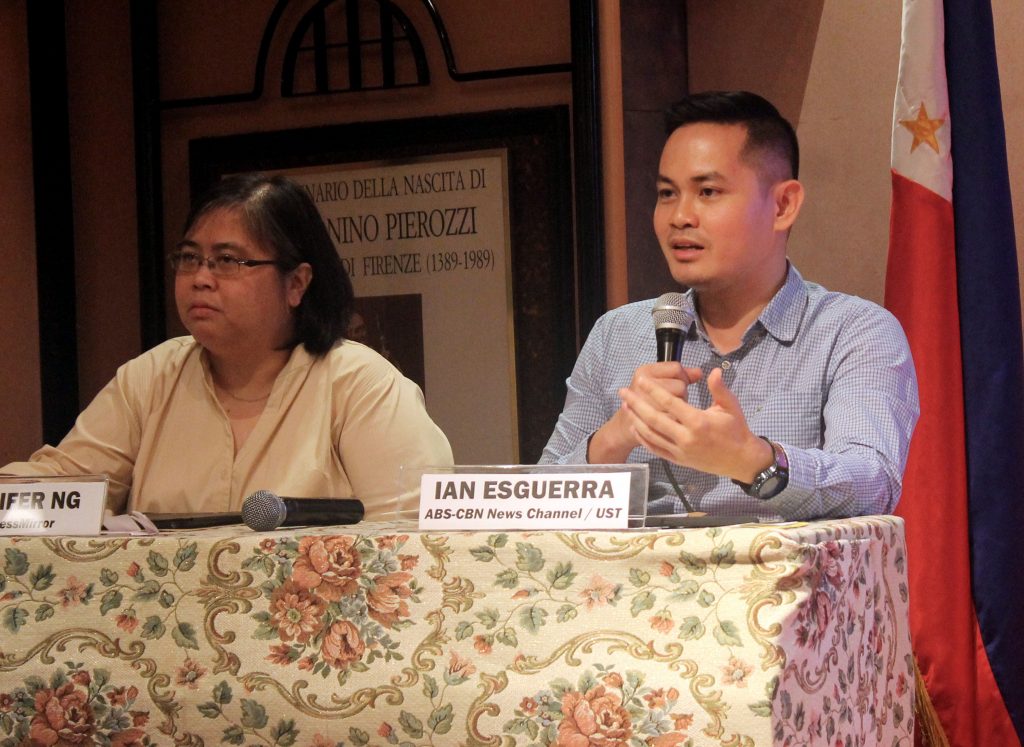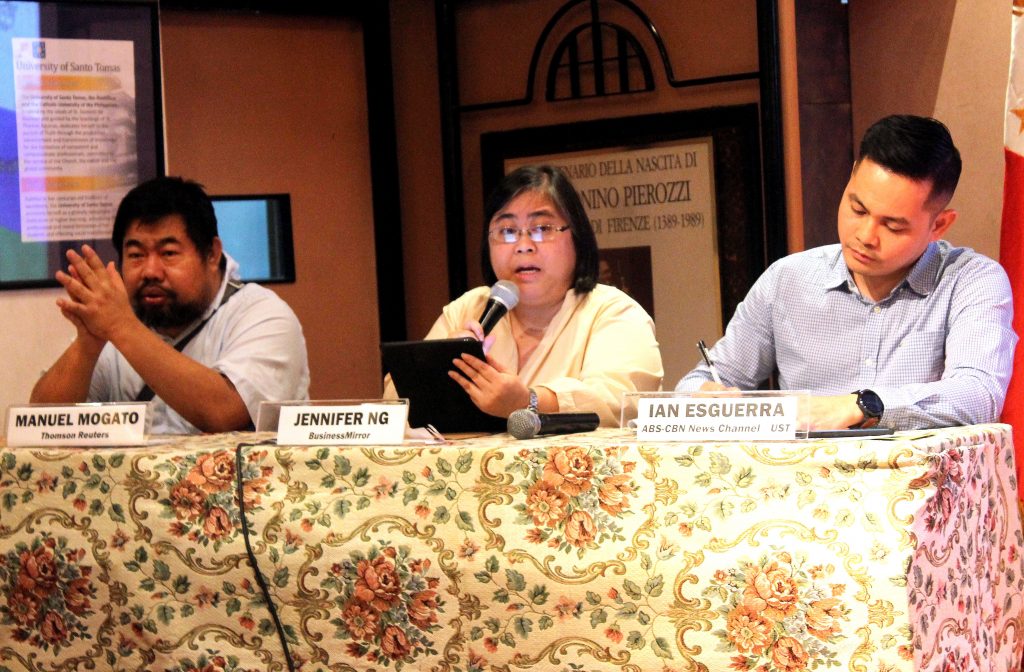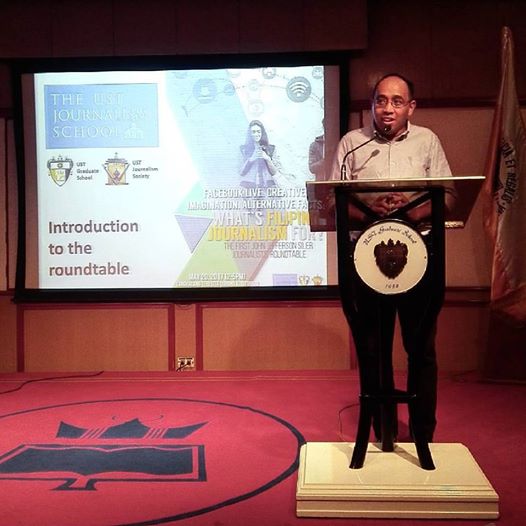The UST Journalism School, in partnership with the UST Journalism Society, held its first John Jefferson Siler Journalists’ Roundtable forum titled “Facebook Live, Creative Imagination, Alternative Facts: What’s Filipino Journalism For?” last May 20, 2017 (Saturday) at the Tanghalang Teresita Quirino Auditorium, Benavides Building.
Disposition of Journalism in the Age of Social Media
Former President of Foreign Correspondents’ Association of the Philippines Manuel Mogato said virtual reality posed a threat to traditional journalism. “Journalism now is losing [its] influence,” Mogato said. “Newspapers are losing their money and the trust level of the people in the traditional media is at its lowest level because of fake news, trolls, and [citizen journalism].” However, he said the millenials can adapt to these changes.
Mogato foresaw journalism as paired to advertising in the coming years, citing Rappler and Thomson Reuters as examples of media outlets occasionally producing campaign stories for its sponsoring companies and non-government organizations. “When marketing and advertising take control of your editorial policies, the question next is: Is the media still independent?”
When a story is developing, Business Mirror Associate Editor Jennifer Ng said she prohibited her reporters to share their coverages on social media. “Essentially, we use [Facebook] and Twitter to enhance [Business Mirror’s] brand to attract more readers.” she said. “Information is what our media organization is selling. Why give it away for free?” Ng said. Moreover, Ng also discouraged her reporters to attack government officials and personalities on social media but, rather, use the time to focus on writing the story itself and turn it into an excellent piece.
Ng recalled her publisher’s proposition of migrating from print to online to assuage the rising cost of paper, but it was scrapped for still finding for the “formula” to earn and to approximate what they will earn if they went online. “We are toying with the idea of having a pay wall,” she said. “But we have yet to determine whether Filipino readers who are used to get free information would be willing to part with their cash for our stories.”
Asst. Prof. Christian Esguerra, ABS-CBN multimedia reporter, said the biggest challenge confronting Filipino journalists were the hostile online trolls supporting the current administration.
In one of his press conferences in Davao, President Rodrigo Duterte not only called the mainstream media a corrupt industry but he also cursed at the reporters; Esguerra was one of them. Esguerra then posed the question: “How should we react? Should we be professional, just stick to the issue, and ask questions? Or should we rise as a person being insulted by [the president] who was voted by 16.6 million Filipinos?”
“But I do not think he had a license to do that.” he followed.
Despite, the seasoned reporter affirmed that a large part of the president’s remark toward mainstream media being corrupt was true.
As an educator in the Faculty of Arts and Letters, Esguerra said it is a dilemma on their part in discussing the nature of media. “[The young, idealistic, journalism students] fail to see the balance between what media is for and what media is not.” Esguerra told the aspiring journalism students not to be discouraged.
On Behaviors and Business Models
Business Mirror Editor-at-Large Dennis Estopace highlighted that good journalism rests its place in the basics. “If we [write] good stories and work on good stories, many people will realize, even if offline or online, that we are doing good journalism, they would call it great journalism; the ability to go back the basics,”Estopace said. “Building credibility, building good reputation, and building public trust is a cross-generational, socially accepted behavior that most journalist would really have.”
“A good story beats anything,” Estopace said.
President of Asian Institute of Journalism and Communication (AIJC) Prof. Ramon Tuazon said the media still had almost total dependence on advertising as its main revenue source. “Advertising dominates revenue source, defined as the life and blood of the commercial media.” According to Tuazon, commercial media have to diversify their revenue streams for several reasons: 1) To improve profit 2) To sustain operations and survive 3) rent dues losses for hemorrhage.
Citing studies that showed people were inclined to entertainment, regardless of media platform, Tuazon said there is no market for journalism. “While you have 47 million active internet users, less than 14% use in the internet for news.” Tuazon said.
According to Alwyn Alburo, Program Manager of GMA 7, the local media outlets were patterned from the American model and were problematic in terms of ownership: “Corporate media is largely owned by those who are in power and those who have business interests, and those who want to control the tools of information. Most of these are aligned with those in political power.”
Alburo encouraged the students to do good and ethical journalism. “Who else can save us except ourselves? We are still the hope of our profession, provided you just do good or even great journalism,” he said. “The basics are still the best. It is therefore reasons that mustered and propelled names from the past and those currently practicing as well into greatness because they are doing old fashioned, basic, honest, and truthful journalism.”



